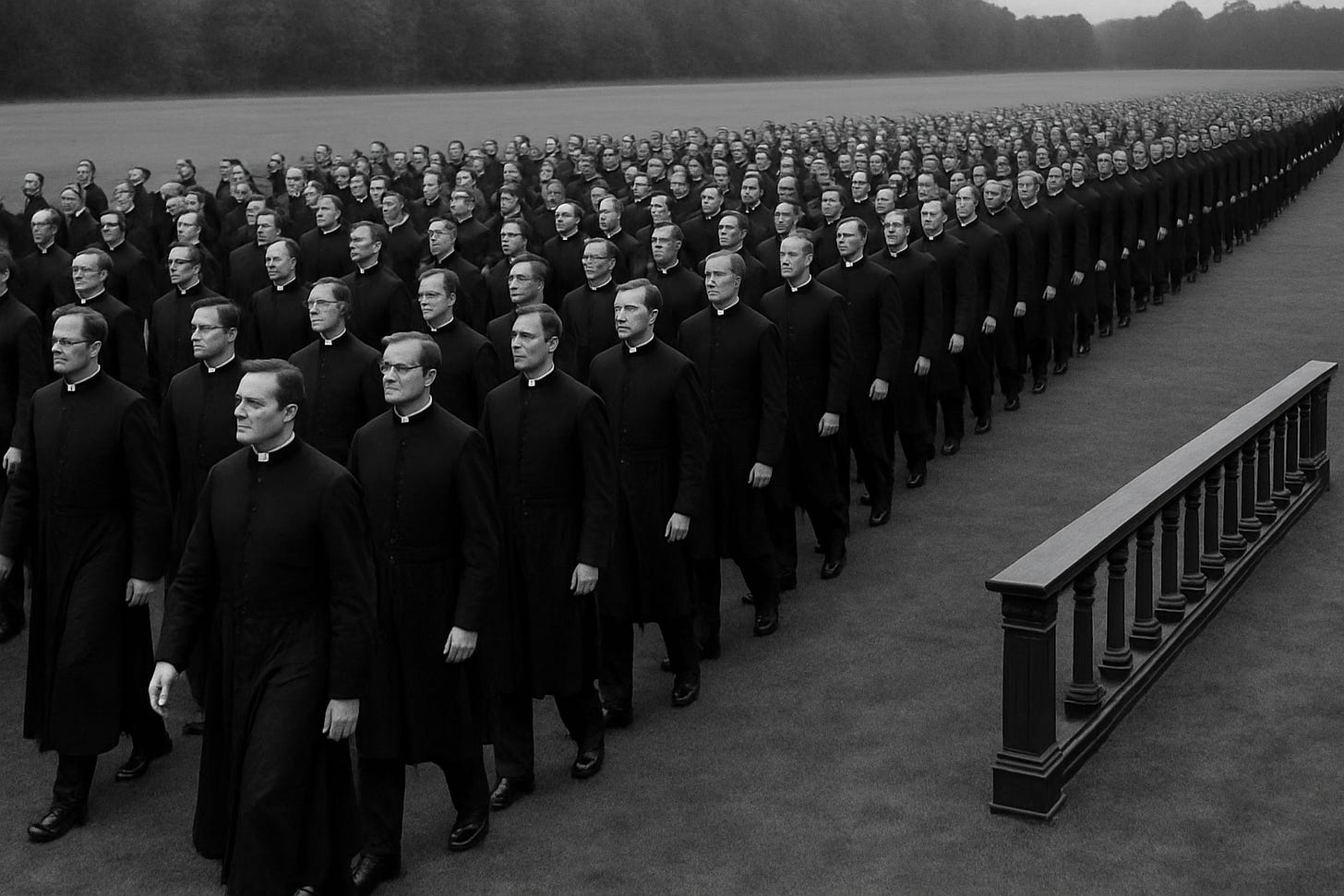“Closed Communion”: A Practice of Love and Respect
Guarding the Altar Is an Act of Love, Not Pride
In many of our communities, the practice of Closed Communion is often misunderstood—even by some within our own pews. Those who come from different traditions or even from less catechized backgrounds sometimes see it as judgmental, rude, or unloving. I’ve often heard people say, “Jesus welcomed everyone, so why wouldn’t you?”
But when Closed Communion is rightly practiced, it is one of the most loving, pastoral, and respectful expressions of faithfulness that a Lutheran pastor can exercise. It is an act rooted not in exclusion or pride, but in love and reverence—love for Christ and His Word, love for the souls entrusted to our care, and love for our fellow pastors who walk with us in the same confession of faith.
Love for Christ and His Word
We believe that the Lord’s Supper is not a symbolic meal but the very Body and Blood of Christ given and shed for the forgiveness of sins. To treat it casually, or to give it to those who do not discern the body and blood, is to ignore the solemn warning of Scripture:
“For anyone who eats and drinks without discerning the body eats and drinks judgment on himself” (1 Corinthians 11:29).
When a pastor faithfully practices Closed Communion, he is not being harsh or unwelcoming. He is protecting the flock from harm. To commune someone unrepentant or outside of the confession of the faith is to fail in the pastoral duty of care—to disregard both Christ’s command and the soul before us.
Love for the Souls Entrusted to Our Care
I once served a congregation where I met a couple living together outside of marriage. The woman was Lutheran, and the man was Roman Catholic. The issue before me was not only their living situation but also that the man had never been catechized and did not share our confession of faith regarding the Sacrament.
As I began my ministry in this congregation, this became the first significant pastoral situation that needed careful attention. I met with them—patiently, compassionately, and prayerfully—to understand their circumstances. In the end, they made clear they had no plans to change or repent. Because of this, I informed them that they could not come to the Lord’s Table until repentance and faith were restored. A few weeks later, they returned and came to the rail as if nothing had happened. I did not commune them.
They responded, “Well, the big LCMS church down the road communes us and doesn’t care that he’s Catholic.”
When I later called that congregation, one of the pastors that served that congregation told me, “Brother, we have so many people it’s hard to police this. But if I see them, I’ll give them a talking to.”
That exchange revealed something troubling: if a congregation is too large or too casual to properly care for the souls at its altar, we must ask whether it is truly providing pastoral care at all.
Love for Our Brother Pastors
Closed Communion is also an act of respect for our fellow pastors in the Office of the Holy Ministry. When one pastor disregards another’s faithful instruction and communes those under his care against his judgment, it undermines the unity of the Church and the integrity of our shared confession.
We in the LCMS are called to walk together—that is, to live in unity of doctrine and practice. To disregard Closed Communion is not only to fail in our pastoral responsibility but also to disrespect our brothers who are striving to be faithful to Scripture and the Confessions.
A Call for Unity in Practice
Faithful practice of Closed Communion is not merely a congregational matter; it is a synodical one. When this practice is neglected or inconsistently applied, it harms far more than one pastor or one parish. It injures the pastor who fails to carry out his God-given duty to care for the souls entrusted to him, and it undermines his pastoral credibility—especially when he appears selective, strict with some and lax with others. It harms the parishioners, who are left confused about the seriousness of Christ’s gifts and uncertain about what our church actually teaches. It harms brother pastors across the circuit, district, and Synod, because inconsistent practice breeds uncertainty about which congregations are faithfully walking together in our confession. And it harms the pastors who will one day follow him, forcing them to rebuild what should never have been compromised. For the sake of Christ’s people, Christ’s ministers, and Christ’s unity, we need not only agreement on paper but unity in practice at the altar.
Conclusion
In the end, Closed Communion is not a barrier to grace—it is a boundary of love. It is the Church’s way of saying, “This meal is holy. Let us approach together in unity, faith, and repentance.”
When practiced faithfully, it honors Christ, safeguards souls, and upholds unity among His under shepherds. That is not judgment—it is pastoral care, born of deep love and respect.




Well said, Sir.
We have so much work to do.